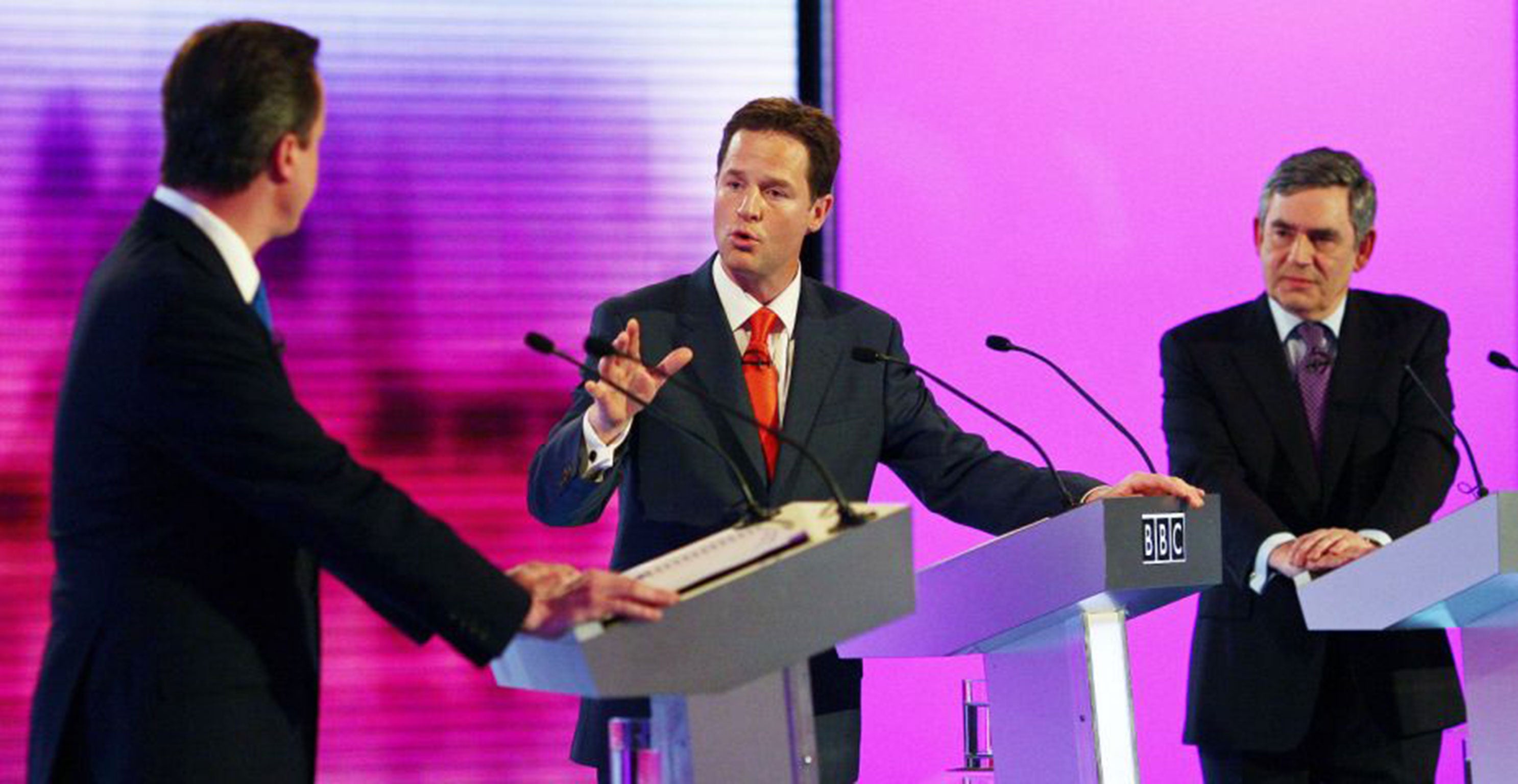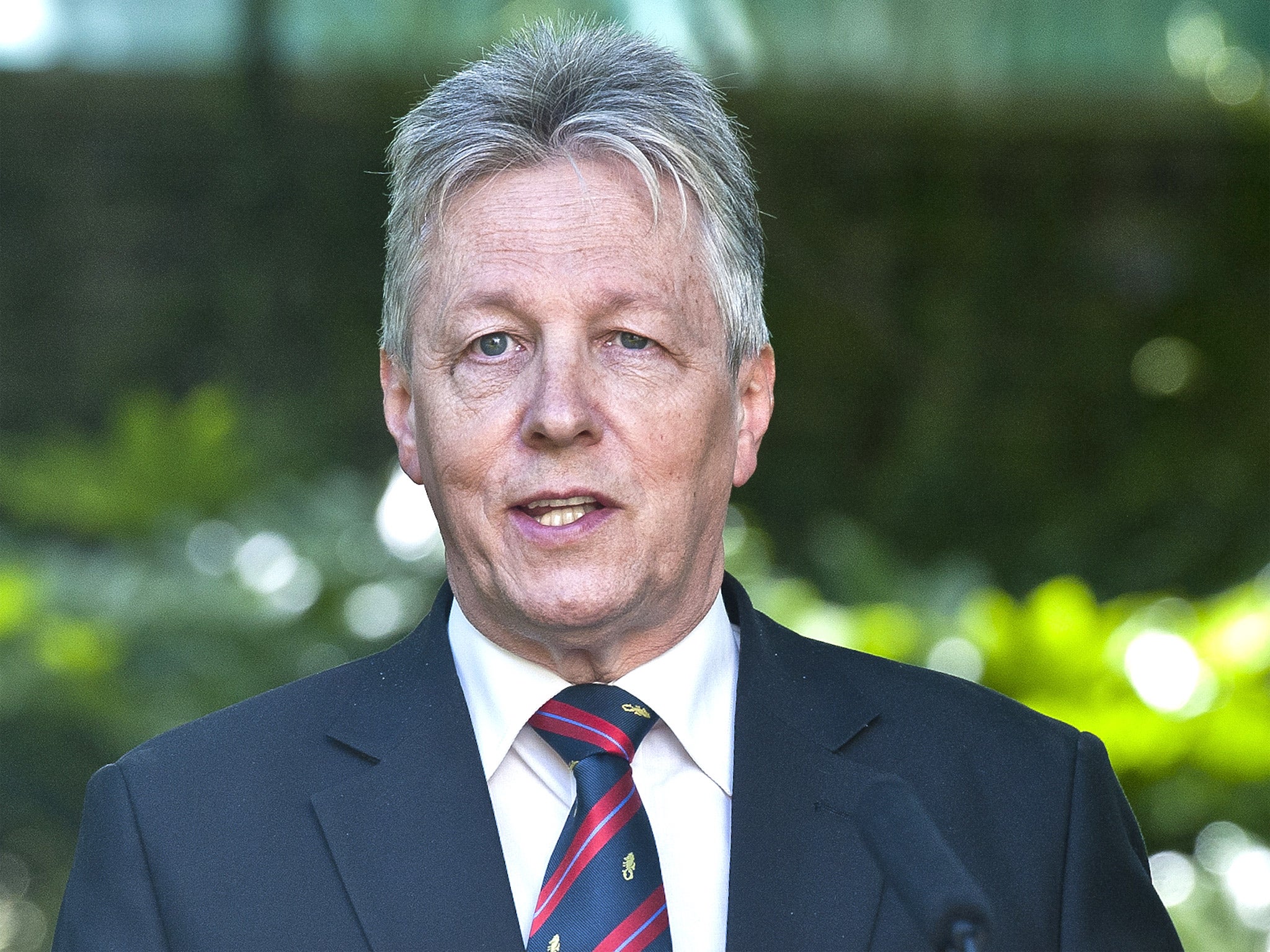Cameron demands another change to pre-election TV debates before he agrees to take part
After complaining about the exclusion of the Greens, he now wants Northern Ireland parties to be invited

Your support helps us to tell the story
From reproductive rights to climate change to Big Tech, The Independent is on the ground when the story is developing. Whether it's investigating the financials of Elon Musk's pro-Trump PAC or producing our latest documentary, 'The A Word', which shines a light on the American women fighting for reproductive rights, we know how important it is to parse out the facts from the messaging.
At such a critical moment in US history, we need reporters on the ground. Your donation allows us to keep sending journalists to speak to both sides of the story.
The Independent is trusted by Americans across the entire political spectrum. And unlike many other quality news outlets, we choose not to lock Americans out of our reporting and analysis with paywalls. We believe quality journalism should be available to everyone, paid for by those who can afford it.
Your support makes all the difference.David Cameron has said he will only take part in televised election debates if broadcasters invite Northern Ireland to the table.
The Prime Minister has been accused of seeking to dodge facing off with leaders including Ukip’s Nigel Farage with criticism of television companies’ plans for the format.
He has insisted he wants to take part but blamed the broadcasters for putting forward a proposal which “doesn't quite make sense” as the list of parties grows longer and longer.
If the BBC, ITV, Sky and Channel 4 acquiesce to his latest suggestion, there would be eight participants in two debates.

Mr Cameron previously objected to plans put forward by the four largest broadcasters in October because they included a spot for Mr Farage but not for the leader of the Green Party, Natalie Bennett.
Now the channels are proposing a revised 7-7-2 format, under which two debates hosted by the BBC and ITV would feature the leaders of the Conservatives, Labour, the Liberal Democrats, Ukip, the Greens, the Scottish National Party and Plaid Cymru, and a third on Channel 4 and Sky would pit Mr Cameron against Ed Miliband in a head-to-head clash of the two men deemed most likely to emerge as Prime Minister.
The incumbent said the plan left Northern Irish parties as a glaring omission and the Democratic Unionist Party, which has eight MPs in the Commons, has already complained at its exclusion when parties with a smaller Parliamentary presence were invited.

Asked when he would finally agree to take part in the debates, the PM told BBC1's Breakfast: “I am saying 'yes'. I think they are a good thing. We need to have these discussions so we agree who is in and the format and the rest of it.
"It was the broadcasters that decided not only to include the Greens, but they then decided to include Plaid Cymru from Wales and the SNP from Scotland and I think the Labour Party and myself both made the point that you can't have one part of the UK - Scotland or Wales - without having another part - Northern Ireland.
“The broadcasters have decided that they want to set the terms for these debates and that is obviously their right to try and do that.
"But if they suggest something that doesn't quite make sense, then it is perfectly fine, I think, for other people to point out some of the issues."
The Prime Minister said he believed an agreement could be reached after “good progress” in continuing talks.
Additional reporting by PA
Join our commenting forum
Join thought-provoking conversations, follow other Independent readers and see their replies
Comments